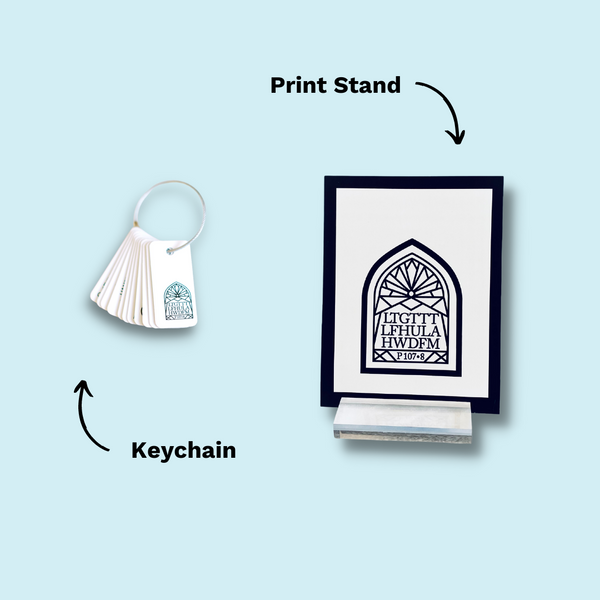"BUT TO YOU WHO ARE LISTENING I SAY: LOVE YOUR ENEMIES, DO GOOD TO THOSE WHO HATE YOU." — LUKE 6:27
Enemies are usually easy to identify. We can quickly think of someone who stole from us, or maligned our reputation, or even physically abused us. Those who are hostile or hateful toward us are easy to label “enemy.”
But what about our own brothers and sisters in the faith? Whether in the local church or the global church, is it possible for us to treat our Christian siblings as our enemies too?
For many of us, our first days in the faith or our first days in a new church were delightful. We were euphoric with new forgiveness and new friendships. As the Lord poured grace into us, we happily poured it out to others. We embraced new sisters and brothers who accepted us unconditionally. We could see they wanted our best, they were committed to us, and they loved us. We felt the same way.
If you’ve been a Christian for more than a few days, though, you know that euphoria wears off. We may now be saints, but we’re also still sinners. Joining the family of Jesus does not automatically mean we all get along. The past few years have been nothing if not divisive—and not just “out there” in culture, but “in here” in our churches too.
Politics, Covid, social justice, vaccines, elections, pronouns—just a few of the chaotic cultural currents we’ve been navigating in recent years. Most Americans, and most Christians, have strongly held views about all these issues and more. And please hear me, biblically-based convictions are good. It’s good and right for us to wrestle with social issues in light of Scripture. It’s even okay for us to share our convictions online or in person. The question is, when we know we sharply disagree with our siblings in Christ do we treat them like enemies? Maybe.
Our verse this month, “But to you who are listening I say: Love your enemies, do good to those who hate you,” (Luke 6:27) is only the first half of one sentence. The second half says, “bless those who curse you, pray for those who mistreat you” (v. 28). The first half feels easy to dismiss when it comes to conflicts with fellow Christians, given the strong words of enemies and hate. But the second half softens just enough to give us pause.
Here’s a question for you and me—a question no one will hear you answer out loud, but one you can honestly evaluate with the Lord your God: How do you really feel about Christians who sit opposite you when it comes to various issues? Do you ever curse them (v. 28)? While a curse can be an obvious, malicious proclamation, it can also be more subtle: a quiet disdain, a hoped-for downfall or misstep, a she deserves it kind of feeling. Or, if you’ve ever been cursed by a fellow believer, was your reflex to bless in return (v. 28)?
Most of us can identify with the following scenario. After a highly charged current event, you made a social media post, voicing your opinion. A brother or sister in your own church left a comment on your post, calling you foolish, maybe even evil, on the wrong side. You saw him or her in church the next week. Was your reflex to bless the sibling who cursed you? Did you move toward them to offer a hug, to quickly reconcile, to cover any hurt or mistreatment in love? Even if you avoid social media, you have likely endured a similar interaction in the church lobby or over dinner with your small group. Or you may be offended by a Christian sibling’s t-shirt or bumper sticker and curse them in your heart. With strong opinions swirling, none of us are unscathed.
Just after Jesus’s command to love our enemies he asks, “If you love those who love you, what credit is that to you?” (Luke 6:32). Applying his question to our own church lives, what credit is it to you and me if we only pursue, befriend, host, sit next to, and bless those in our churches who are easy to love? It’s not hard for me to stay cozy with others who think like me, dress like me, talk like me, vote like me. That takes zero effort. But to move toward my siblings who read the opposite news outlets, who have opposing opinions, who are vocal with views I don’t like? That takes effort, a dying to self, nothing less than a move of the Holy Spirit within me.
Goodness, Jesus’s words are hard. He calls us to love those who don’t love us, to love those who are hard, to love when it’s not automatic. He says you should respond with good when bad has been done to you (v. 33). Freely lend and freely give, even when you know you’ll get nothing in return (v. 34, 35).
Expect nothing in return, Jesus says. Just love. Just do good. Just give. This is how the “children of the Most High” (v. 35) are expected to behave. We are called to be lovers and givers and forgivers because our God is, and he lives in us, and he empowers us to be like him.
This portion of Jesus’s teaching closes with, “Be merciful, just as your Father is merciful” (v. 36). We are not permitted to be loving and merciful and good to others only when it’s easy. God says, Make the first move. Like he did.
Do you and I believe the gospel is big enough, that Jesus’s love is deep enough, that the church is home enough for brothers and sisters from across the spectrum of opinions and views and convictions and ideas? Is the gospel big enough to embrace us all? Can Jesus’s blood cover us simultaneously, even as we sharply disagree?
The division within and departure from churches over the past couple years is evidence that many of us don’t think so. Apparently we think our differences are too big for unity. We are quicker to curse than we are to bless, quicker to depart, quicker to write off, quicker to run away than we are to run toward.
But it should not be so. It feels jarring to admit that we may treat one another like enemies, that there really are big rifts between siblings in the Lord. Let’s ask our Father to help us bless, give, lend, and expect nothing in return. Let’s remember the lavish mercy he has bestowed upon us. He is merciful. May we be merciful. The gospel is bigger than our differences.
Editor’s Note: We recognize that this verse may bring to mind the sensitive topic of abuse. If you have suffered abuse, or are currently suffering abuse, please tell a trusted person and get help. Setting up boundaries in situations of abuse can be good and right. Forgiveness and good intentions towards our enemies doesn't always look like fully restored relationships.




